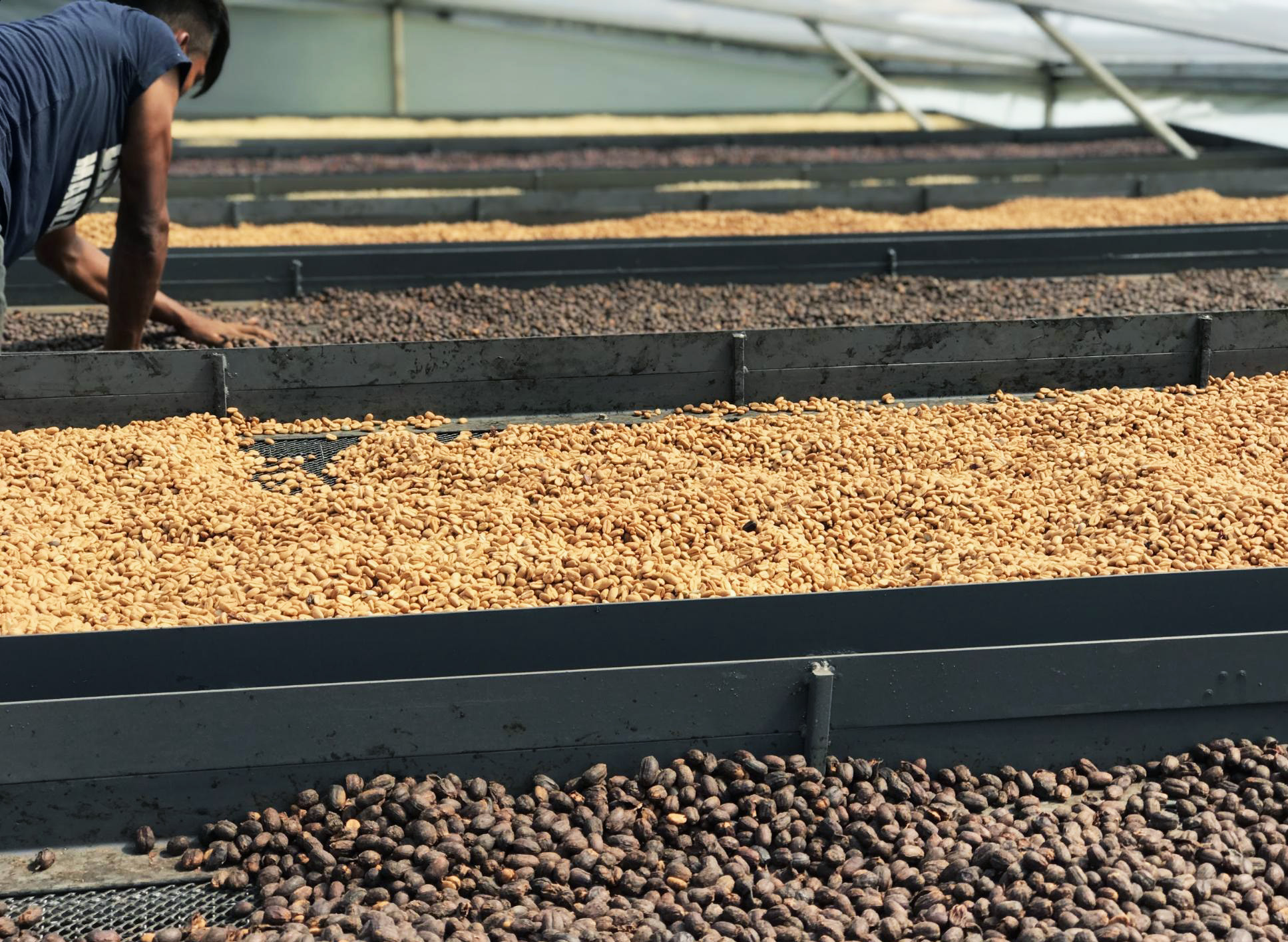 Raised drying beds at Finca Deborah, in Panama. In the foreground is a traditional natural; midground is a washed coffee.
Raised drying beds at Finca Deborah, in Panama. In the foreground is a traditional natural; midground is a washed coffee.
Natural processing has many advantages to coffee producers. It is far cheaper than wet processing, and it can reduce the water footprint of a coffee mill to near zero. This reduces the pressure on millers to find a reliable source of large quantities of clean water, and it also means that the environmental and financial costs associated with the disposal of processing water disappear. However, there are risks associated with dry processing. When performed without any quality-control measures, natural processing can lead to strong flavour taints and harmful mould growth.
The majority of the world’s coffee — and practically all of the world’s robusta — is dry processed.